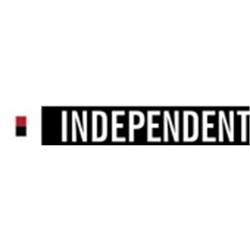Public Protector Busisiwe Mkhwebane has warned organs of state that her remedial action is binding – not optional.
“The Constitution in section 181 (3) enjoins organs of state to assist and protect my office with a view to ensuring its independence, impartiality, dignity and effectiveness.
“It further states in section 181 (4) that no person or organ of state may interfere with the functioning of the [Public Protector]. I do not prefer to name and shame like this,” Mkhwebane said in a briefing at the institution’s Tshwane headquarters on Thursday.
Mkhwebane pointed out Minister of Police Bheki Cele, Minister of Defence Nosiviwe Mapisa-Nqakula and Blade Nzimande in his previous role as minister of higher education and training, as those who defied her orders.
uMzimkhulu Local Municipality
In the matter involving alleged corruption and maladministration at the uMzimkhulu municipality in KwaZulu-Natal in 2018/19, Cele failed to provide protection to the two whistleblowers who exposed the use of public funds, she said.
“As we speak, we have two whistleblowers in KwaZulu-Natal who are on the run, having fled their homes after several threats were made on their lives.
“Their crimes are lifting the lid of the maladministration that took place in uMzimkhulu,” Mkhwebane said.
Mvithi report
Mkhwebane also said Mapisa-Nqakula failed to implement her remedial action in the matter of a former lieutenant colonel in the South African National Defence Force, Babalo Mvithi.
Mvithi and his family are without a source of income due to maladministration by the Department of Defence and Military Veterans.
“Now and again, Mr Mvithi writes to me, complaining that my office is doing nothing about this plight when in fact we have done all that we could.
“In one of his correspondences, he recounted how he can’t even afford sanitary towels for his teenage daughters as a result of what he sees as a failure to assist from my office,” Mkhwebane said.
Minister of Higher Education
Mkhwebane further named the Nzimande for failing to implement remedial action in the Tshwane South College report of 2017/17.
The report looked at alleged procurement irregularities, maladministration, nepotism, corruption and victimisation of employees at Tshwane South College.
“In that case too, the Minister of Higher Education and Training failed to implement remedial action,” she added.
These three cases form part of a long list of approximately 38 reports where Mkhwebane’s remedial action was ignored or taken on judicial review.
While the Public Protector recognises the organs of states’ right to take her reports on judicial review, her remedial action still stands until a court rules otherwise.
As a result, Mkhwebane has turned to moral suasion to get the implicated public office-bearers to “do the right thing”.
“This is an act of appealing to the conscience and morality of the culprits by publishing details of their misdeeds.
“It is indeed a tragedy that, with all these powers we possess, we have had to resort to this way of doing things,” she said.








